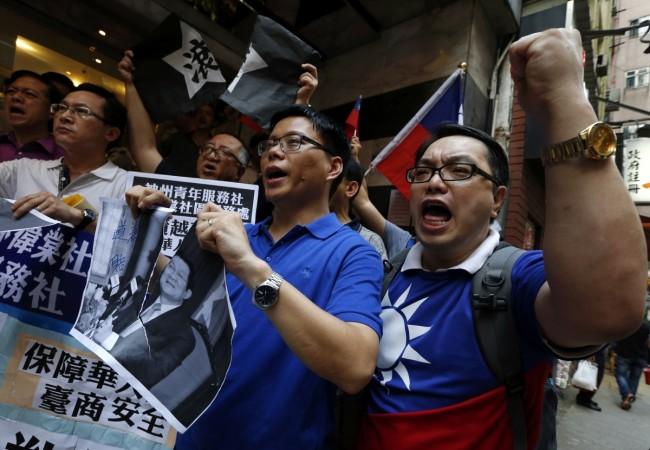
A top Chinese general on Thursday defended the deployment of an oil rig that has inflamed tensions in the disputed South China Sea and triggered deadly protests in Vietnam, blaming Hanoi and saying China cannot afford to "lose an inch" of territory.
General Fang Fenghui also pointed blame at U.S. President Barack Obama's strategic "pivot" to Asia as Vietnam and China grapple with one of the worst breakdowns in relations since the neighbors fought a brief border war in 1979.
Anti-China riots in Vietnam erupted after China's towing of an oil rig into waters claimed by both countries. Up to 21 people have been killed and a huge foreign steel project has been set ablaze.
Fang said some Asian nations had seized on Obama's vows to rebalance military and diplomatic assets to Asia as an opportunity to create trouble in the South and East China Seas.
Fang, chief of the general staff of the Chinese People's Liberation Army, said in Washington that the oil-drilling rig was operating in China's territorial waters, activity he vowed to protect.
A U.S. official said Vice President Joe Biden told the visiting Chinese army chief that Beijing's actions in the maritime disputes were "dangerous and provocative."
Standing at the Pentagon alongside the top U.S. military officer, General Martin Dempsey, Fang said Vietnam was at fault for stirring up trouble by dispatching ships in an attempt to "disrupt" Chinese drilling activity.
"I think it's quite clear ... who is conducting normal activity and who is disrupting it," Fang said, speaking through an interpreter.
Alarmed at China's military rise and growing assertiveness, Vietnam has broadened its military relationships in recent years, most notably with Cold War-era patron Russia but also with the United States.
China claims almost the entire oil- and gas-rich South China Sea, rejecting rival claims to parts of it from Vietnam, the Philippines, Taiwan, Malaysia and Brunei. In the East China Sea, Beijing is locked in an increasingly bitter dispute with Japan.
Speaking about regional tensions, Fang said Beijing did not create trouble, but was also unafraid of it and suggested China was ready to defend its territorial integrity.
"Territory which has passed down by our ancestors into the hands of our generation - we cannot afford to lose an inch," he said.
Dempsey did not explicitly criticize China but left no doubt about his concerns over the growing regional tensions.
Asked whether China was behaving provocatively in the dispute with Vietnam and whether he saw the risk of conflict in the region increasing, Dempsey said: "We spoke about the fact that the use of military assets to resolve disputes is provocative and it does increase risk."
"We had a rich discussion about what exactly is the status quo and who has been seeking to change it," Dempsey said.





!['It's not Mumbai traffic, it's air traffic': Suriya apologises to Mumbai media after paparazzi yelled At Him for making them wait for hours [Watch]](https://data1.ibtimes.co.in/en/full/806234/its-not-mumbai-traffic-its-air-traffic-suriya-apologises-mumbai-media-after-paparazzi.jpg?w=220&h=138)
![Bigg Boss 16-fame Sreejita De and Michael Blohm-Pape exchange wedding vows in dreamy Bengali ceremony [Inside Pics]](https://data1.ibtimes.co.in/en/full/806233/bigg-boss-16-fame-sreejita-de-michael-blohm-pape-exchange-wedding-vows-dreamy-bengali-ceremony.jpg?w=220&h=138)






